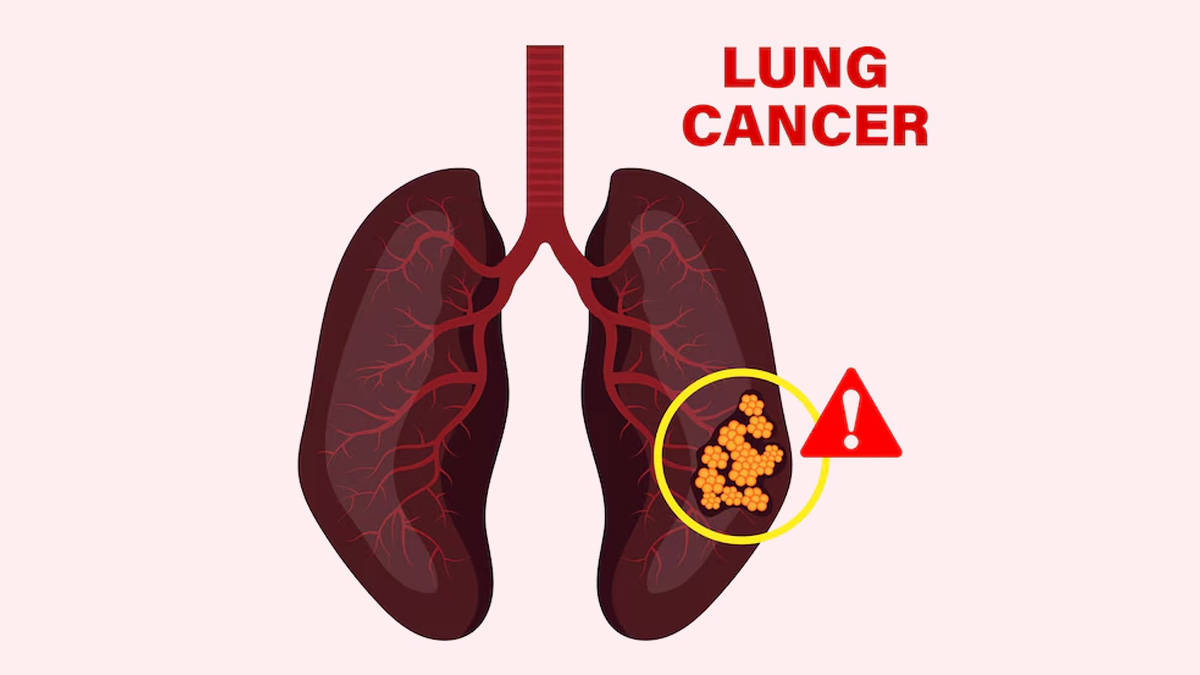
Lung cancer is a devastating illness that affects millions of people worldwide, raising questions and concerns, especially when it comes to its causes. One question that frequently comes up is whether lung cancer runs in families. While it's well known that smoking is the leading cause, the possibility of a genetic link can be deeply unsettling. To help clarify this, we spoke to Dr Jacob George, Consultant Medical Oncology, Manipal Hospital, Goa, who sheds light on the relationship between lung cancer and genetics, and the factors that truly influence its development.
Table of Content:-

According to a 2023 study, lung cancer ranks as the most common and deadliest form of cancer worldwide, with approximately 2 million new cases and 1.8 million deaths annually. With two million new cases diagnosed each year, it poses a significant health threat. While the average age of diagnosis is 70, men are disproportionately affected due to higher smoking rates. However, women are increasingly at risk due to genetic factors like the epidermal growth factor receptor mutation.
“The primary cause of lung cancer is environmental, with smoking being the most significant risk factor. This makes lung cancer largely preventable. However, it's crucial to note that while smoking is the main cause, lung cancer can also occur in non-smokers, and the incidence in this group is on the rise,” said Dr George.
Is Lung Cancer Hereditary?

One of the most pressing questions about lung cancer is whether it can be inherited. Dr George said, “Lung cancer is very rarely hereditary. Unlike some cancers that have a strong genetic link, lung cancer primarily develops due to environmental factors, particularly smoking. It’s also important to clarify that lung cancer is not contagious and does not spread through physical contact.”
Also Read: World Lung Cancer Day 2024: Expert Explains Role Of Palliative Care In Lung Cancer Treatment
The Aggressive Nature of Lung Cancer

Lung cancer is known for being an aggressive disease. Many patients are diagnosed at an advanced stage, where the cancer has already spread, making treatment more challenging. A 2011 study indicates that genetic factors may play a more significant role in increasing the risk of lung cancer in individuals who are younger and have never smoked.
“Even in cases where lung cancer is detected early and treated with surgery, the risk of recurrence remains high. This aggressive nature underscores the importance of early detection and comprehensive treatment strategies,” highlighted Dr George.
Treatment Options for Lung Cancer

Lung cancer treatment involves a combination of surgery, radiation therapy, and systemic therapy, which includes chemotherapy. Dr George added, “Advancements in medical technology, such as PET-CT scans, molecular testing, and minimally invasive surgeries like Robotic Surgery and Video-Assisted Thoracoscopic Surgery (VATS), have significantly improved treatment outcomes. These advancements have not only enhanced the precision of treatments but have also reduced the complications associated with them.”
For patients diagnosed with early-stage lung cancer, there is hope for a cure, especially when standard surgical resection is followed by adjuvant treatments like chemotherapy. Unfortunately, surgery alone may not be sufficient due to the high risk of recurrence, making additional treatments necessary. For patients with inoperable tumours or those who are unfit for surgery, radiation therapy serves as the primary treatment option.
Advances in Treatment: Targeted Therapy and Immunotherapy
“In cases of advanced lung cancer, where the disease is often considered incurable, the focus shifts to palliative care aimed at improving quality of life and prolonging survival. Traditionally, this has involved chemotherapy, but recent advancements in molecular biology have introduced new treatment modalities, such as targeted therapy and immunotherapy,” explained Dr George.
Modern anti-cancer treatment mandates compulsory molecular testing which has helped to individualise cancer treatment according to the tumour biology. This has resulted in superior outcomes - not only better control of disease but also significant improvement in survival.
“These newer treatment modalities also have a role to play in early-stage disease as adjuvant treatment along with surgery, radiation and chemotherapy. The addition of these drugs in early-stage lung cancer has decreased the recurrence and thus cured more patients afflicted with this aggressive cancer,” said Dr George.
[Disclaimer: This article contains information provided by an expert and is for informational purposes only. Hence, we advise you to consult your own professional if you are dealing with any health issues to avoid complications.]
Also watch this video
How we keep this article up to date:
We work with experts and keep a close eye on the latest in health and wellness. Whenever there is a new research or helpful information, we update our articles with accurate and useful advice.
Current Version